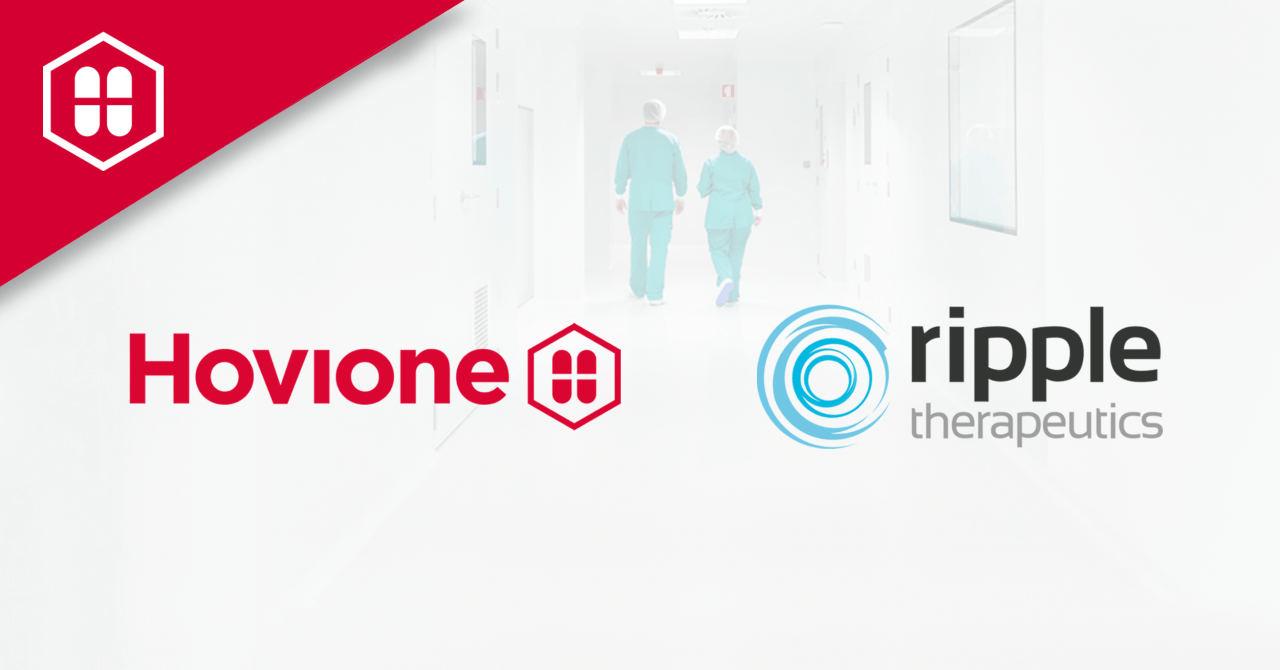Press Room
Hovione and Ripple Enter Strategic Partnership to Expand Epidel® Platform into Non-Ophthalmic Space
Hovione, the specialist integrated CDMO, leader in spray drying and particle engineering, and Ripple Therapeutics have entered a strategic partnership to expand the use of Ripple's Epidel® platform beyond ophthalmic applications.

Lisbon, March 20, 2023, Hovione, the specialist integrated CDMO, leader in spray drying and particle engineering, and Ripple Therapeutics, a leading ophthalmic sustained drug delivery company, have entered a strategic partnership to expand the use of Ripple's Epidel® platform beyond ophthalmic applications.
The core feature of Ripple’s Epidel® technology is the ability to deliver sustained-release pharmaceuticals with surface erosion release kinetics without the use of polymers or excipients. This enables higher drug loading, smaller size implants, defined and predictable biocompatible degradation products with straightforward and scalable manufacturing processes. Surface erosion-based drug release provides a highly effective way to control dose and duration. By incorporating Ripple's Epidel® platform into its toolbox, Hovione can expand its portfolio of novel drug delivery solutions to the pharmaceutical industry.
“The combination of technology synergy, innovative vision and cultural fit makes collaborating with Hovione an exciting next step in the advancement of the Epidel® platform beyond the ophthalmic field,” stated Dr. Wendy Naimark, Ripple co-founder and Chief Technology Officer. “Hovione’s expertise in controlled, sustained drug delivery, along with their experience in chemical synthesis and pharmaceutical manufacturing, makes for a great partnership.”
"We are thrilled to partner with Ripple, who developed a state-of-the-art platform for sustained release," says Dr. Jean-Luc Herbeaux, Hovione's CEO. " Our shared goal is to accelerate and broaden the access to this highly innovative and enabling technology for the benefit of our pharmaceutical customers and their patients worldwide."
By extending the use of the Epidel® platform beyond ocular applications, this partnership will enable the development of a diverse range of new products with optimal sustained release profiles.
About Hovione
Hovione is an international company with over 60 years of experience in pharmaceutical development and manufacturing operations. As a Contract Development and Manufacturing Organization (CDMO) with a fully integrated offering of services for drug substances, drug product intermediates and drug products. The company has four FDA inspected sites in the USA, Portugal, Ireland and China and development laboratories in Lisbon, Portugal and New Jersey, USA. Hovione provides pharmaceutical customers services for the development and compliant manufacture of innovative drugs, including highly potent compounds, and customized product solutions across the entire drug life cycle. In the inhalation area, Hovione offers a complete range of services, from API, formulation development and devices. Hovione´s culture is based on innovation, quality and dependability. Hovione was the first Chemical/ Pharmaceutical Company to become a Certified B Corp, is a member of Rx-360, EFCG and participates actively in industry quality improvement initiatives to lead new global industry standards.
About Ripple Therapeutics
Ripple Therapeutics Corporation is a clinical stage, privately held company that is focused on ophthalmic therapeutics with controllable, sustainable drug delivery. The core feature of Ripple’s Epidel™ technology is the ability to engineer sustained-release pharmaceuticals with surface erosion release kinetics without the use of polymers or excipients. Ripple’s novel therapeutics provide for better outcomes for patients, easier management of care for physicians and lower costs for payors. Ripple has a full product pipeline in development. www.rippletherapeutics.com

